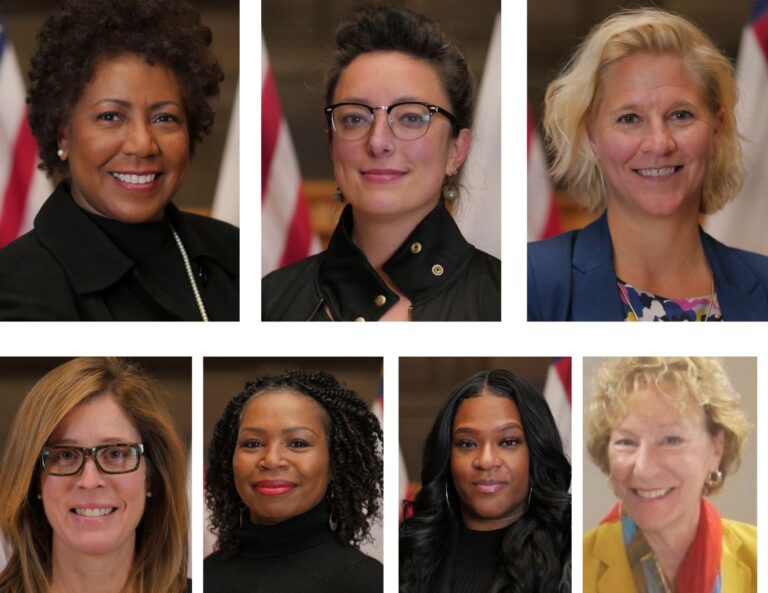One hundred years after women earned
the right to vote in America,
Asheville will seat its first all-woman City Council Dec. 8.
It’s an all-first in the state of North Carolina
and it’s a rarity nationwide.
Led by Mayor Esther Manheimer, new Council members Sandra Kilgore, Kim Roney and Sage Turner will take their seats in (a virtual) Council Chamber Dec. 8, joining Vice Mayor Gwen Wisler and Councilwomen Antanette Mosley and Sheneika Smith. Three of the Council members are Black.
This comes in a year in which the nation elected its first female Vice President — who is also of a biracial woman of color — and elected or re-elected a record number of 26 Black women to Congress. Notably, the City of Asheville is also served by a Black woman City Manager, Debra Campbell.
Why does this matter? What might this dynamic bring?
“It matters that there’s an all-female Council because it represents a glass ceiling that’s being shattered,” said Leisha DeHart-Davis, professor at the N.C. School of Government. “We know from research that when governments look like the people they serve, it benefits communities. And the racial diversity on this Council is a real positive.”
Here are some takeaways from members of the new all-woman Asheville City Council.
Sheneika Smith
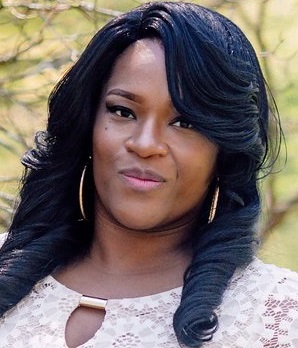
“Since elected to serve on council in 2017, I’ve been a part of several historic gains, but none more comforting and life-giving than the sacred opportunity to work alongside two other passionate Black women. These two Black women are also Asheville natives and deep rooted in the community. That’s a game-changer and comforting!”
Kim Roney
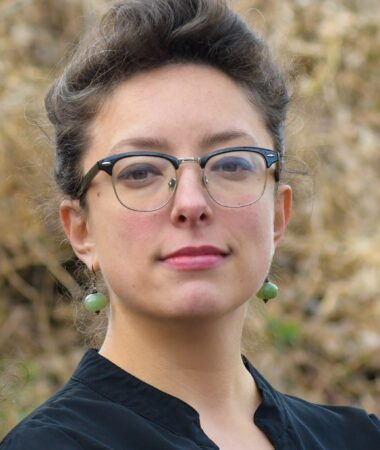
“My great-grandmother was born in Asheville, and she was 10 years old when the 19th Amendment (granting women the right to vote) was ratified 100 years ago.”
“As her great-granddaughter, I’m celebrating this historic occasion in honor of my ancestors while reflecting on the lessons learned from our journey, since not all my neighbors are able to celebrate this moment in the same way.”
Antanette Mosley
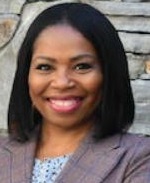
“I think it’s important for people to associate women with leadership. I also think it’s important for little girls to be able to see themselves in their leaders.”
“I believe this is the first time three Black women have served together on Council. We each grew up here, and we’re able to bring that perspective to the table. I’m especially proud that Sandra was able to win more votes than any candidate this election. Her ability to gain support among the largest/broadest coalition speaks volumes.”
Sage Turner
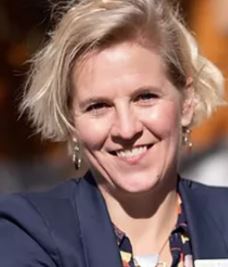
“Women belong in leadership roles as much as men and these women are brilliant, dedicated citizens from a variety of backgrounds and experiences.”
Collaboration is key
Research shows that women tend to work more collaboratively. And the value people place on relationships is a strong influencing factor on whether and how they collaborate, according to the Harvard Business Review. Relationship-heavy cultures are marked by inclusion, personal connection, and relationship-based decision making.
“I expect our new all-woman City Council to work collaboratively with each other and with the community,” said Wisler.
“Anytime you’re talking about the business of government, with lots of stakeholders, collaboration becomes really important,” said DeHart-Davis. “They are going to be more effective if they work together.”
“The voters of Asheville elected a highly talented group of individuals to serve the diverse interests of our community,” said Mayor Manheimer. “These ladies are hard workers and dedicated to the people of Asheville; furthermore, it goes without saying that we’re all good multi-taskers — these attributes are a formula for success.”
When women run, they win (mostly)
The fact that all these women stepped up to the plate speaks well of their commitment to public service, said DeHart-Davis. “It’s a tough job.”
Women don’t run for elected office at the same rates as men do. “But actually they do quite well when they run,” DeHart-Davis said.
“I’m thrilled that Asheville has taken this step forward,” DeHart-Davis added. “It speaks well of the inclusiveness of the community that they’re elected an all-female slate.”
